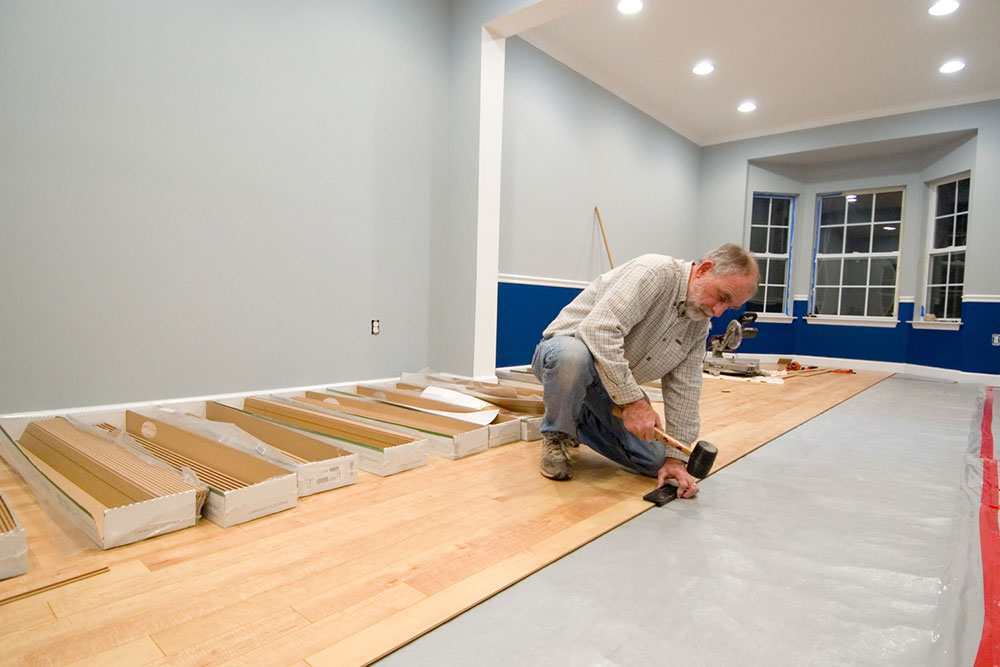8 basement renovation mistakes to avoid

Basements can be heavily underutilized, especially when used to store all the extra stuff in the house. Sometimes, the basement is also a makeshift laundry room, gym, playroom, or all rolled into one. However, if planned well, it can become a valuable living space. The right upgrades in this space can also enhance the resale value of the house. So, if one is planning to renovate the basement, they should avoid the following mistakes:
1. Not obtaining the right permits
It is mandatory to get a permit for basement renovation. Not getting a permit is not only illegal but can also prove to be dangerous. This is because the permit ensures that the renovation job is done according to the safety laws and code of the city. One can get a permit by calling the local municipality office and informing them about the type of work one is planning to undertake in the basement. Then, board inspectors will visit and periodically monitor the work to ensure all rules and regulations are followed.
2. Skipping inspection
As a basement is right underneath a house, it is prone to structural issues that can develop over the long run. Further, for one moving into the existing house, a professional inspection can help them detect all issues, from water seepage to pest infestation, that can cause potential damage. If these problems are discovered after the renovation, it will mean re-doing everything and incurring huge expenses in the process. So, it is crucial to get the basement inspected before going through with any modification or renovation. This step will help one plan better and prevent issues.
3. DIY renovation without experience
DIY renovation can seem easy on videos online. Also, taking on a project solo may seem tempting from the cost perspective. But if one does not have the necessary skills or expertise, DIY renovation can be a mistake. This is because handling key aspects of the job, like plumbing and electrical, will require specialized skills and knowledge. Unless one is quite well-versed in these tasks, it is better to call in a professional for the project.
4. Not allocating enough money
A common renovation mistake is focusing solely on saving money and not setting aside enough money for the work. This usually happens when the renovation of the basement is carried out as an afterthought or as something that just needs to be done. Here, one may want to compromise on the quality and quantity of materials and labor and end up with sub-par work just to save some money. However, one should consider the basement as an extension of the house. Then, they should allocate enough money for its renovation, paying attention to enhancing the aesthetics and functionality of the space, just like they would for the living room or the kitchen. This way, the space will become more functional and cohesive with the rest of the house.
5. Overlooking water emergencies
All basements are prone to water emergencies such as flooding and damaged drainage systems. So, it would be a mistake not to plan for such damages when renovating the basement. Before starting the renovation work, one should consider the location of the house. If it is a low-lying area prone to flooding during storms, the basement will definitely have water coming in. So, one should plan for proper drainage. It also helps to invest in a sump pump that will drain all the water from the basement floor if it is flooded.
6. Skipping soundproofing
A major portion of the mechanical and electrical systems of a house are located underground. This means the basement will be prone to a constant humming noise. This can get annoying for the occupants, especially if the basement has been modified to be a studio, entertainment room, or study room. So, one should consider soundproofing the basement. There are several ways to do this, including installing soundproofing pads or leaving a little bit of space between the layers of the walls so that sound does not get through.
7. Keeping the ceilings too low
Basements are typically devoid of natural light. This, combined with low ceilings, makes the room feel stuffy and confined. If the same ceiling height is maintained during the renovation, it can make the space unusable, as the low ceiling can cause a lot of discomfort. One may not want to spend a lot of time in such a space. As the goal of the renovation project is to make the basement more usable, one should consider getting the ceilings lifted up a bit. This may cost more, but the long-term results would be worth it.
8. Neglecting basement stairs
An often overlooked aspect of basement renovation is redesigning the stairs that lead up to it. Most basement steps were originally designed to be high and narrow, as these were supposed to be spaces that one does not use regularly. Going up and down these poorly designed stairs can be uncomfortable. Also, the original design may not match the renovations. So. one should avoid excluding stairs from the renovation plan and ensure modifying them to make them more convenient to use on a daily basis.









